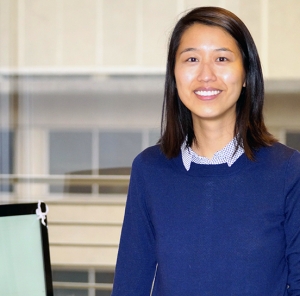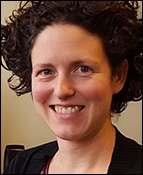About EAG

EAG economists work in teams with other economists and attorneys in the Antitrust Division to investigate mergers between significant rivals and a variety of horizontal and vertical conduct, such as exclusive contracts and loyalty discounts. We do research, inspired by the insights and wealth of information and data that fuel our investigations.
EAG is fortunate to attract highly skilled individuals who value the chance to solve real world problems, to have a positive impact on our economy, and to work closely with each other as colleagues and co-authors.
Meet Some of Our Economists
Economists in the Expert Analysis Group (EAG) have rigorous training in microeconomics. Many of our colleagues come to EAG with a background in Industrial Organization, but increasingly other fields such as Experimental Economics, Applied Econometrics, Health, Labor, Economic History, Finance, Environmental Economics, and Public Finance are represented. What we share is a strong interest in applying the framework of applied microeconomics to understand the decisions and interactions of real world businesses and to use that understanding to promote competitive dynamics that protect and benefit consumers.
Why do highly-skilled economists choose to take on this unique work instead of following the path of teaching and research? And what do we enjoy most about the challenges and opportunities that come our way in EAG? Below are some thoughts from a few of us.
Patrick Greenlee

Working as an economist at the Antitrust Division is an interesting, challenging “life of the mind.” In one recent assignment I was part of a team looking at a vertical merger in a high tech industry. We were approached by competitors that complained that the merged firm would disadvantage them in the provision of key assets in order to win more downstream business. A natural question is would those complaining competitors be disadvantaged in the manner they describe, or because the merger would enhance downstream competition? Those complaining competitors hired a prominent IO economist to convince me that the incentives for such post-merger opportunism were huge. A downstream buyer complained to us that the merger would significantly reduce its innovation activity due to increased concerns about information leakage. Part of their pitch included arguments put forth by another hired prominent IO economist. As part of the investigation, we met with a firm in Silicon Valley in order to better understand the technology issues at hand, including concerns about information leakage. The merging parties hired their own consultant (another prominent IO economist) to argue that nondisclosure agreements were commonplace in the industry so that information leakage concerns could be adequately addressed via contract. After speaking with a large number of market participants and discussing/debating theories and evidence with three prominent IO economists, the investigative team presented a recommendation on how to address the proposed merger to the Assistant Attorney General and her leadership team at the Division. Ultimately, the parties chose to abandon the merger.
The casework here, much like an academic job, involves a great deal of creative thinking. This includes proposing new ideas and approaches, designing empirical tests to make efficient use of data, reacting to arguments made by other team members, outside experts, and market participants, and teaching economic concepts to noneconomists. Along these lines, EAG can be thought of as an economics department with about 50 microeconomists trained at various institutions with various specializations. Most doors are open, so when I need to learn about a novel argument or empirical approach, useful and willing resources are typically sitting down the hall.
This similarity to academic positions extends beyond casework. Economic research is encouraged and since joining the Division, I have written a number of articles that have been published in economic and antitrust journals. Some of these are with fellow staff economists while others have been coauthored with our chief economist (technically the Deputy Assistant Attorney General for Economics). In addition, while casework typically involves a fair amount of teaching, Division economists can also teach in a more formal setting. Several of us have taught economics courses in undergraduate, masters, and doctoral programs at nearby universities.
When I first accepted a job at the Division, I thought I would stay here a few years primarily to develop a more in-depth understanding of a few markets before returning to academia. With interesting casework that provides ample opportunity to think creatively, paired with great colleagues, I am still here 20 years later.
Deborah Minehart

I came to the Antitrust Division in 2003. I first arrived as an academic visitor on leave from the University of Maryland, where I was an associate professor. I had been in academia for about 10 years—first at Boston University and then at the University of Maryland. I did not have much familiarity with antitrust, but my research was in applied theory and industrial organization. I knew early on in my visiting year that I loved the work the Division was doing and that I would like to stay on if they would have me.
My path to working in antitrust is an unusual one. I had a Ph.D. from the mathematics department at the University of California at Berkeley, but I realized in graduate school that my deeper interests were in economics. Then, during my years as an economics professor, I came to realize that I wanted to be more engaged with worldly issues outside of the publishing and teaching spheres. I began to inquire about visiting positions in the Federal Government, and a colleague pointed me towards the Antitrust Division. That was the best professional advice I have ever taken!
What I like so much about the work is the mix of real world issues and academic analysis. One of my favorite parts is the beginning of an investigation when the case team interviews industry executives to learn how the markets work. It is fascinating to hear how businesspeople view their industries. The interviews are also an efficient way to learn what matters most to the competitive dynamics. My role at this stage is to guide the case team’s thinking about the competitive theories. When investigations continue past the initial phase, our work usually includes various kinds of data analysis that may support or repudiate these theories. The work becomes more intense, but is also very exciting.
I continue to work on academic research, though it is no longer my main focus. My current research focuses on the optimal organization of research and development. A recent publication is “Optimal Sharing Strategies in Dynamic Games of Research and Development, with Nisvan Erkal, in Journal of Economics and Management Strategy.
Jessica Stahl

I came to the Division after working as an economist for seven years at the Federal Reserve Board. I had a fantastic experience at the Fed, and learned a lot about a wide range of topics: macroeconomic outlook, financial stability, bank mergers, and the payments industry. While there I started to think about some questions that had antitrust implications, and I realized that I really wanted to get more involved in antitrust. I had always been interested in antitrust, ever since I took a course on industrial organization as part of my economics Ph.D. program and instantly loved the subject. I like to think about how firms make strategic choices, how markets work and how consumers are ultimately impacted by market structure and firm decisions.
So far, I think this job is a perfect fit for me. I love learning about the intricacies of different industries. Each case is different; it is clear to me that I will never be in a position in which I am doing the same thing over and over. Also I like that this is a place where there are hundreds of people, both economists and lawyers, who are interested in exactly the same issues and questions that I am interested in. Not only do I really enjoy the work I’m doing, but I also love to hear about the work that others are doing. Lastly, I find it very rewarding that the work we do here has an impact on the real world. We are not merely asking academic questions; we are making decisions that have important effects on companies and consumers.

 U.S. Department
of Justice
U.S. Department
of Justice